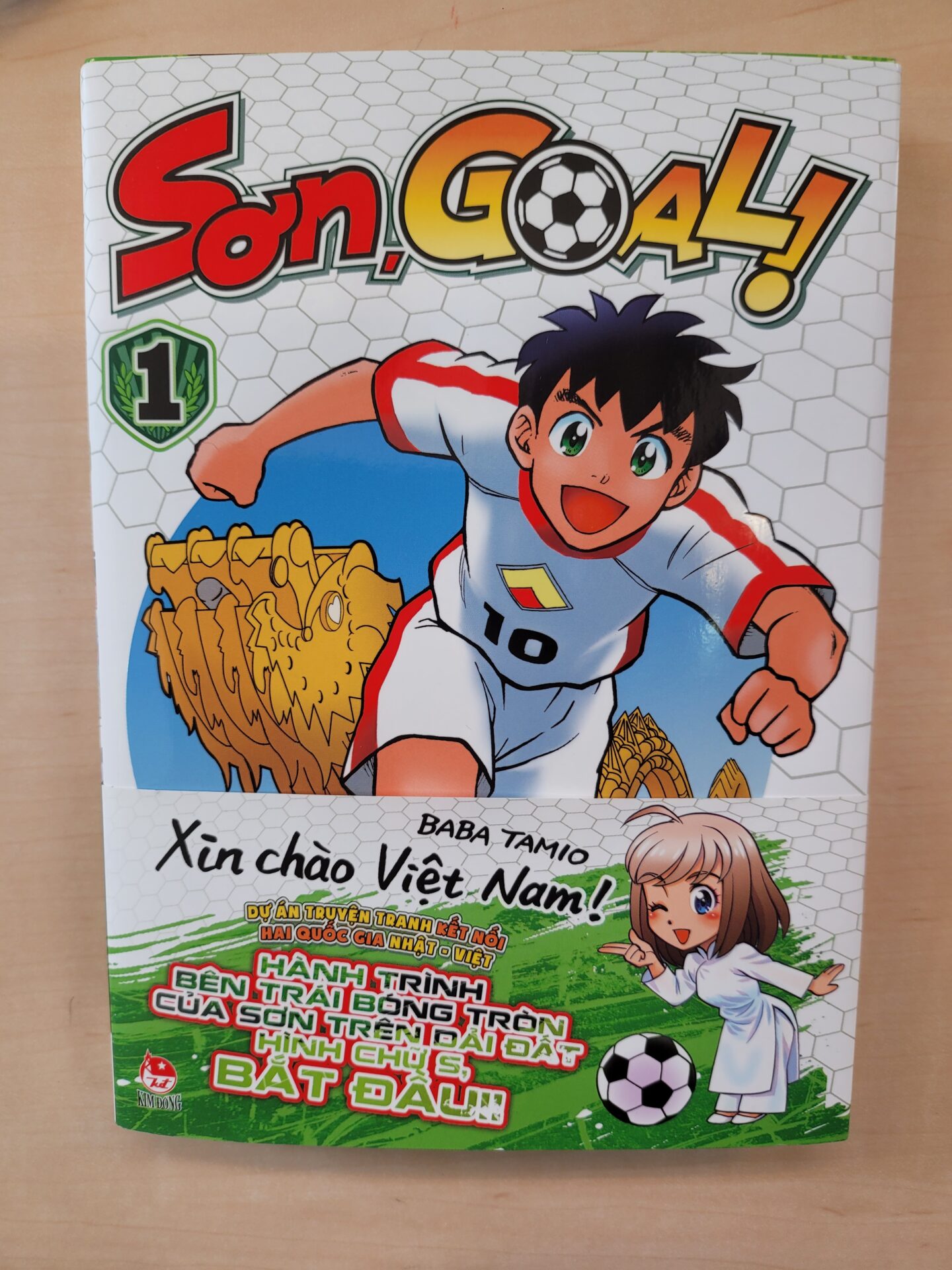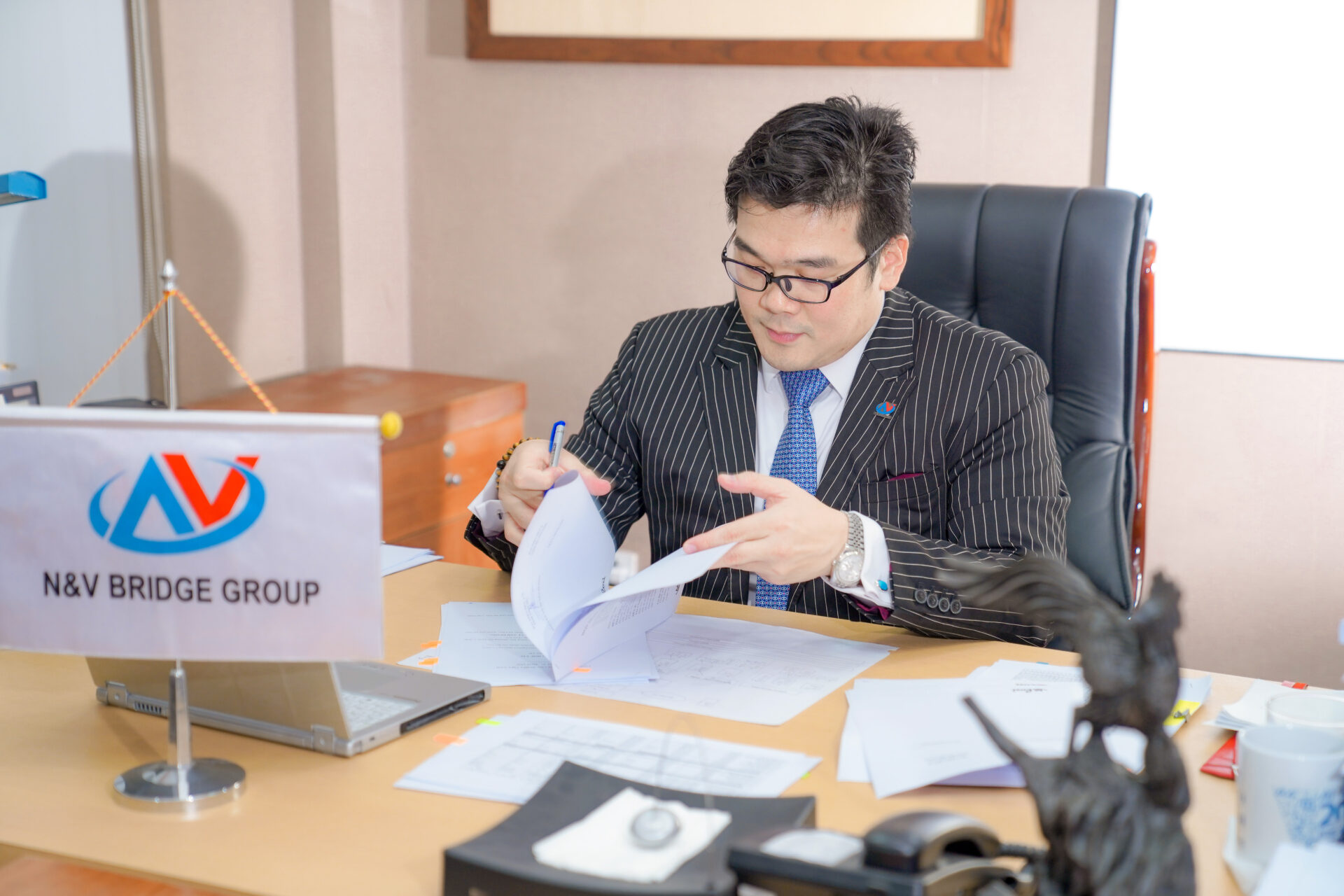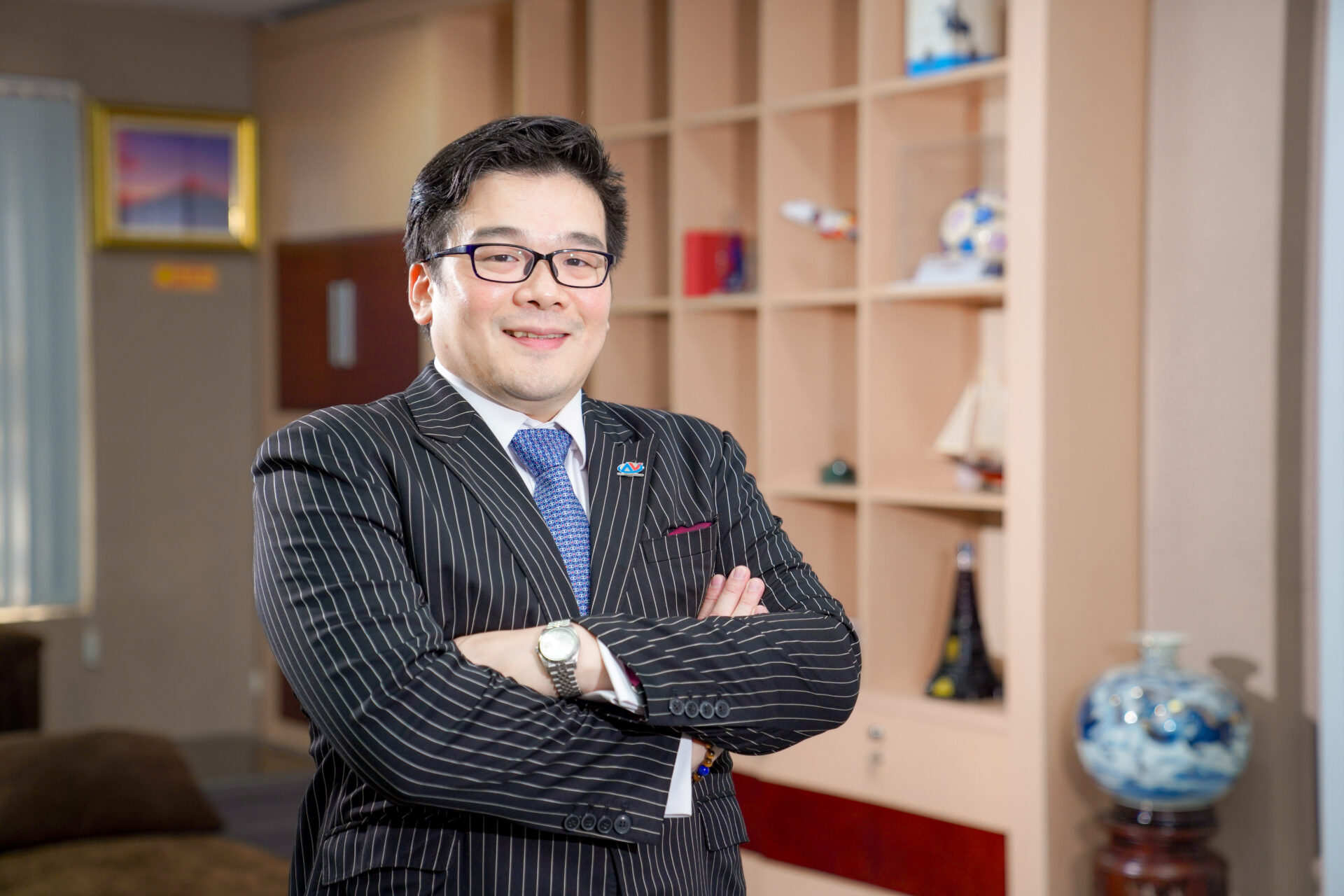A specialist connecting Japan and Vietnam
Facilitating business growth by introducing innovative ventures unexplored in Vietnam
Nguyen graduated from LE QUY DON High School in Da Nang, Vietnam, and was all set to attend a Vietnamese university – having already paid the admission fee. However, he couldn’t suppress his curiosity about studying abroad, so he deferred his enrollment for two years and chose to study in Japan after high school. At the age of 18, he arrived in Japan and spent two years studying Japanese at the Shizuoka Japanese Education Center, before successfully passing the entrance exam for the Electrical and Electronic Engineering Department at Shizuoka University with a specialization in fiber optics.
Instead of joining a typical company after graduation, Nguyen established his own – one facilitating business between Japan and Vietnam. Starting with consulting services, he has gone on to expand his business into various markets. Last year, Nguyen collaborated with the major publishing company KADOKAWA to publish a manga set in Vietnam about soccer, selling over 25,000 copies, and becoming a bestseller. Nguyen strives to provide cutting-edge services to businesses by pioneering business activities not yet undertaken in Vietnamese market, tirelessly contributing to the development of companies in both Japan and Vietnam.
In his private life, Nguyen is committed to assisting the local Vietnamese community. He engages in volunteer translation work and serves as a mentor for international students. We interviewed Nguyen about his thoughts on work and life in Japan.
Have you had an interest in Japan since you were young? What led you to choose Japan as your study abroad destination?
I’ve known about Japanese manga since I was a child, but I wasn’t particularly interested in it. Since my high school was a college-preparatory school, I was all set to attend a Vietnamese university and spend my life in Vietnam. But wanting to experience life abroad definitely had me considering other options. At the time, I was toying with 6 different countries as potential study abroad locations: China, Russia, Singapore, South Korea, France, and Japan. I chose Japan, as I felt it had the most developed economy among them.


What was your first impression of Japan when you arrived at 18?
When I arrived at Narita Airport, I was amazed at the punctuality of the trains and the speed of the Shinkansen. In Vietnam, we have local trains, but them running on schedule is quite the rare occasion. Another surprise was the cleanliness—there was no litter on the roads or around businesses. I was impressed by how clean Japan was
What did you study at Shizuoka University?
I originally wanted to study economics, but my mother was pretty against the idea, saying that I could study economics at any time. Since I had been studying electrical and electronic engineering since high school, I chose to further my studies of the subject and applied to the Electrical and Electronic Engineering Department at Shizuoka University – hoping to deepen my knowledge of optical fibers. Whilst I was proficient in daily conversational Japanese, I struggled with understanding the technical terms which came up during the lectures. For example, Japanese words like “二酸化炭素” (carbon dioxide), were initially very difficult to understand. Back then, we didn’t have such extensive access to the internet as we do now, so looking that stuff up was definitely a challenge. I could understand if it was written in element symbols, which are universal, but it took time to get used to the new terminology. Thankfully, I was able to get by with the help of my friends at Shizuoka University.
You started working as a translator and interpreter in your third year of university, is that correct?
In my third year of university, I began translating and interpreting corporate contracts. This experience allowed me to get a better understanding of how contracts work. I registered with a translation agency in Tokyo and handled a variety of translation projects related to contracts. I believe that the experience I gained from doing this paved the way for my independence.
At university, Nguyen studied fiber optics, and although he initially considered working for a major company where he could utilize this specialized knowledge, his path shifted towards establishing his own business after engaging in translation and interpretation work in his third year of university. Nguyen began working as a consultant to ensure that Japanese companies could smoothly and efficiently conduct business in Vietnam. Adapting to the changing economic landscape, he successfully attracted businesses that had not yet been explored in Vietnamese market. At that time, he introduced concepts such as the izakaya to Vietnam, where such culture did not exist. Subsequently, he expanded into various ventures, including an all-you-can-eat yakiniku chain and organizing weddings in the resort city of Da Nang, Vietnam. Last year, after five years of planning, he successfully launched a popular manga based on the soccer scene in Vietnam. In his private life, Nguyen continues to engage in volunteer activities, providing interpretation services and acting as a mentor to Vietnamese students studying abroad here. In the latter part of the interview will delve into his work and volunteer activities.
Please tell us your motivations for starting your own business and what your company does
Whilst I toyed with the idea of joining a regular company to apply the knowledge I had gained studying at university, the appeal of starting my own business became evident to me, particularly through translating corporate documents starting in my third year of university. I began as a consultant for Japanese companies interested in entering the Vietnamese market. I was able to identify untapped opportunities in the Vietnamese market and successfully attract a well-known Japanese izakaya chain and Japanese-owned hotel to Vietnam. Keeping my ear to the ground and recognizing the evolving needs of Vietnam over time, I was able to bring new and relevant content to the market.
Given Vietnam’s love for soccer, with over 70% viewership for international matches, I collaborated with the major publishing company KADOKAWA to release a soccer manga set in Vietnam. The initial bestseller benchmark was 8,000 copies, but we managed to surpass this and sold over 25,000 copies. The series is still performing well, with three volumes having been released. I believe that the ability to turn unique ideas into a successful business venture is a significant strength.

What is the scale of your current business?
Our company has five offices in Vietnam, with Hamamatsu serving as the headquarters in Japan, and additional bases in Tokyo and Osaka. We established the company 13 years ago, and despite challenges like the Lehman Shock and the COVID-19 pandemic, which caused societal instability and impacted our performance, we are currently operating smoothly.
Outside of work, you volunteer as an interpreter for Vietnamese residents and provide guidance to study abroad students, is that correct?
During my university days, I met Mr. Furuhashi from the Shizuoka Prefecture Vietnamese Association and started volunteering as an interpreter for Vietnamese people who are not proficient in Japanese. Misunderstandings arising from language barriers can lead to difficulties in the workplace or at school, and sometimes, Vietnamese people find themselves involved with the police or the legal system. I help them navigate these challenges through interpretation, making their lives in Japan more comfortable. Even now, whenever I have time, I continue to assist with tasks like court interpreting for those in need.
How do you find life in Hamamatsu?
I have two children with my Japanese wife. In the surrounding area of our home, there are well-maintained parks where our children can play, and the area is surrounded by nature, such as mountains, rivers, the sea, and lakes, making it a wonderful place to live. Hamamatsu is conveniently located almost halfway between Tokyo and Osaka, making it an ideal location for work.
What are your thoughts on parenting in Japan?
In Vietnam, childrearing often involves the collective effort of not just the couple, but the entire extended family, including parents and grandparents. On the other hand, in Japan, it seems that women are working exceptionally hard to do this all on their own. Many women may find themselves caught up in the challenges of parenting, making it difficult for them to work even if they want to. This situation may be influenced by the structures within communities and society. Creating an environment where everyone can contribute to childrearing could potentially ease the burden on mothers and provide a more supportive atmosphere.
So what’s on the cards for you now?
My goal is to continue acting as a bridge between Japan and Vietnam through my business, while also assisting Vietnamese living in Hamamatsu to make their lives more comfortable.
We’re looking forward to hearing all about what you do next! Thank you so much for your time today.
(Interviewed on December 2023)
Nguyen Vo Huyen Duong
Born in 1981, in Da Nang, Vietnam
Father of two, actively involved in parenting
Graduated from Shizuoka University, Electrical and Electronic Engineering Department
Established his own company after graduating from university
Owner of five companies in Vietnam, headquartered in Hamamatsu with branches in Tokyo and Osaka






